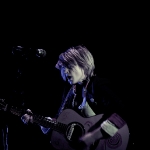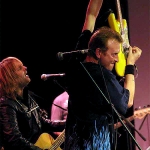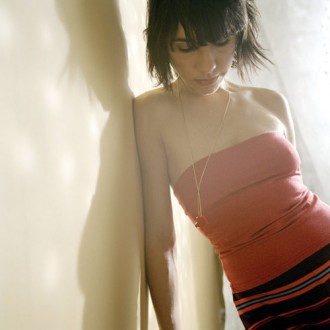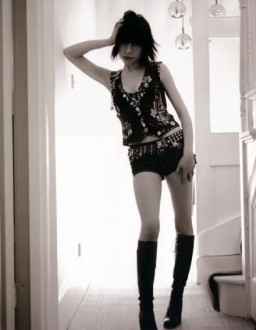PJ Harvey & John Parrish…
A WOMAN A MAN WALKED BY
The bare facts, to start with. A Woman A Man Walked By is the second album co-written and jointly performed by Polly Jean Harvey and John Parish, and comes over 12 years after 1996’s Dance Hall At Louse Point. It was initially recorded at Parish and Harvey’s homes – and later, at a studio in Bristol where it was assisted by the contributions of three other musicians. Some of it is quiet, considered and reflective; at other moments, it verges on the deranged. By turns, it is mischievous, deadly serious, elegant and poetic, and possessed of a brutal power – and it is doubtful that you will hear a record as brimming with creative brio and musical invention this year.
As with just about all the records that have featured its authors’ names either together or apart, it is based on one insight above all others: that repetition and comfy formulas are always to be avoided. So, though you can draw lines between this record and Dance Hall At Louse Point, there are occasions when you’d assume you were listening to the work of different people.
“That’s really important to me in everything I do, and John as well,” says Harvey. “John wrote some music which we didn’t use, because I might have liked it, but it just reminded me of something we’d done before. Likewise, there were a couple of lyrics where we thought, ‘No, we’ve done that before.’ For me, that’s the most important thing with anything I’m working on. It becomes very natural to me to write a certain kind of song. I could really easily keep doing that same formula, and a lot of people would probably love it. But I’d start dying inside. I can’t do it.”
The story that led them here stretches back to the late 1980s, and the first encounter between Parish – then in charge of a renowned West English group called Automatic Dlamini, co-founded by drummer Rob Ellis – and Harvey, who had somewhat optimistically booked them to perform at her 18th birthday party. Thanks to “internal band problems”, they didn’t actually play, but John soon received word of Polly’s talents from a friend, and suggested she join the group.
“Whenever I’ve put bands together, it’s been based on the most spurious of hunches – and I just had a feeling that she was going to be the right person,” says John. “I thought, right away, that she had a fantastic voice – and something about her made me want to work with her. A lot of my friends were quite surprised: they didn’t see the sense in it. But it didn’t take that long to see her change from being quite a nervous, inexperienced performer to really contributing interesting musical ideas. And I felt it was possible to trust her judgement: she had opinions I could relate to.”
Harvey cut her teeth in Automatic Dlamini, playing saxophone and contributing vocals, learning an abrasive, wonderfully rhythmic guitar style from John, and massively growing in self-confidence. She left the group in 1991, and John called time on the group not long after, commencing an admirably productive career as a songwriter, musician and producer that has seen not just three albums of his own - Rosie (2000), How Animals Move (2002) and Once Upon A Little Time (2005) - but collaborations with artists as varied as Giant Sand, Eels and Goldfrapp.
|
|

|

Wallis Bird |
LATEST GALLERY IMAGES

Mike Peters Remembered 
"I Don't Like Mondays..." |
|
|



